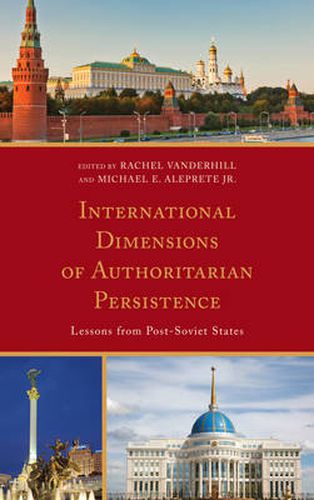Readings Newsletter
Become a Readings Member to make your shopping experience even easier.
Sign in or sign up for free!
You’re not far away from qualifying for FREE standard shipping within Australia
You’ve qualified for FREE standard shipping within Australia
The cart is loading…






While the international system has been evolving in an increasingly liberal direction, the level of democratic practice within the post-Soviet region has, on the whole, declined. Two decades after the popular uprisings against communism, many governments in the region have successfully blunted both popular and international pressures for democratic consolidation. Each selection in this volume explores how international factors interact with domestic conditions to explain the persistence of authoritarianism throughout the region. The selections in the volume cover several countries, including Azerbaijan, Kazakhstan, Uzbekistan, South Ossetia, Ukraine, Moldova, and Belarus; special attention is paid to the Russian Federation since it is both a member of the region and acts as an external actor influencing the political development of its neighbors.
This volume is especially relevant as the world again experiences the surprising overthrow of long-running authoritarian regimes. The failure of democratic consolidation among post-Soviet states offers important lessons for policymakers and academics dealing with the recent wave of political transitions in the Middle East and Asia.
$9.00 standard shipping within Australia
FREE standard shipping within Australia for orders over $100.00
Express & International shipping calculated at checkout
While the international system has been evolving in an increasingly liberal direction, the level of democratic practice within the post-Soviet region has, on the whole, declined. Two decades after the popular uprisings against communism, many governments in the region have successfully blunted both popular and international pressures for democratic consolidation. Each selection in this volume explores how international factors interact with domestic conditions to explain the persistence of authoritarianism throughout the region. The selections in the volume cover several countries, including Azerbaijan, Kazakhstan, Uzbekistan, South Ossetia, Ukraine, Moldova, and Belarus; special attention is paid to the Russian Federation since it is both a member of the region and acts as an external actor influencing the political development of its neighbors.
This volume is especially relevant as the world again experiences the surprising overthrow of long-running authoritarian regimes. The failure of democratic consolidation among post-Soviet states offers important lessons for policymakers and academics dealing with the recent wave of political transitions in the Middle East and Asia.